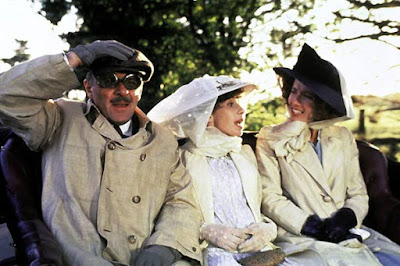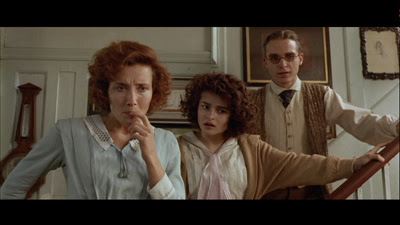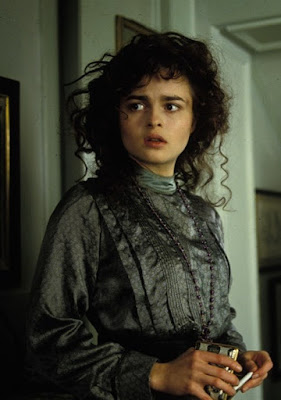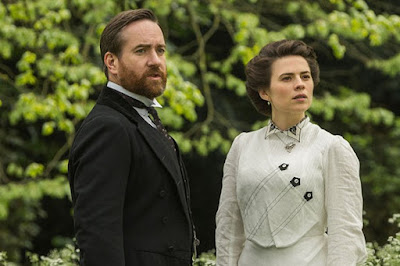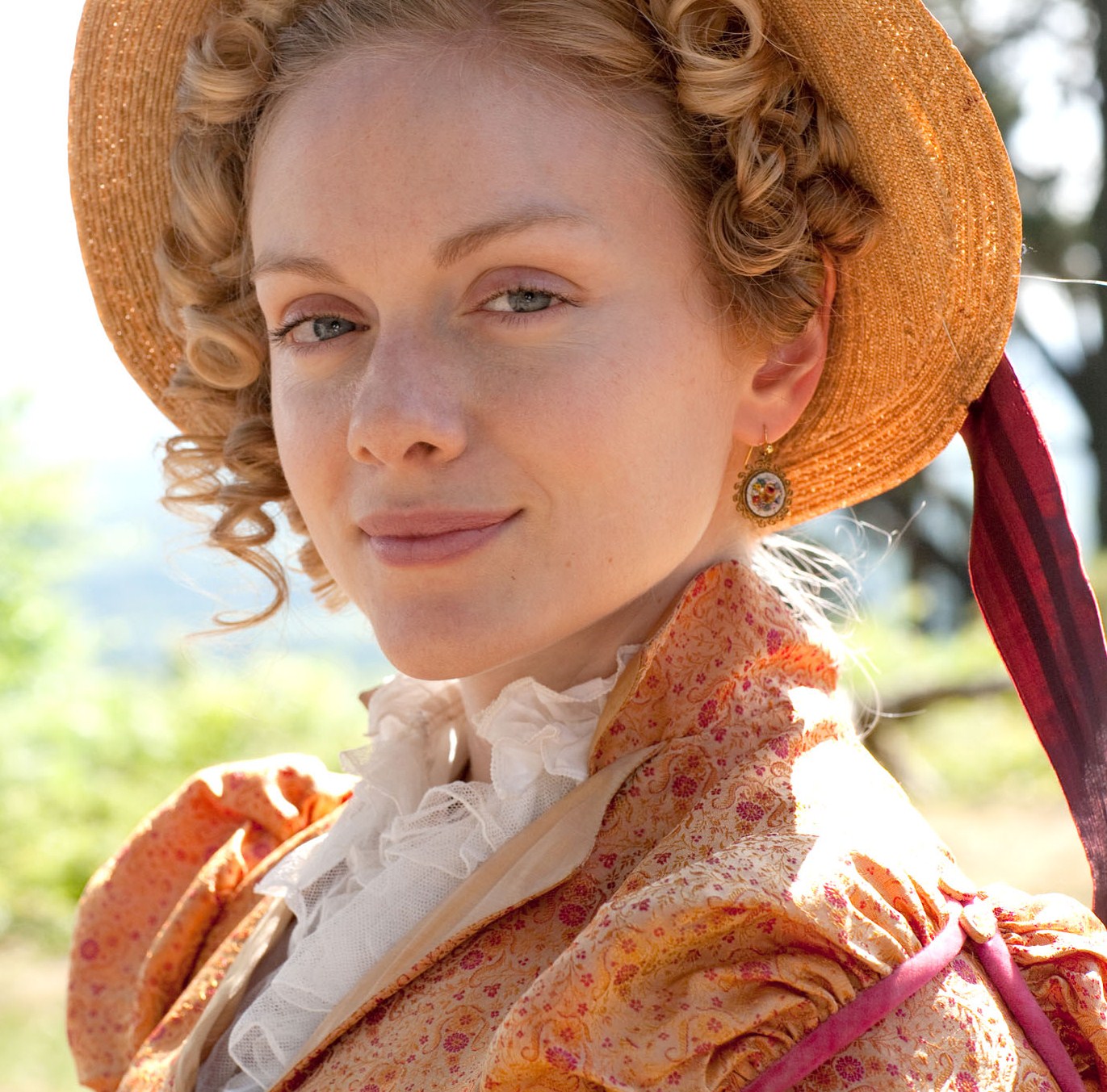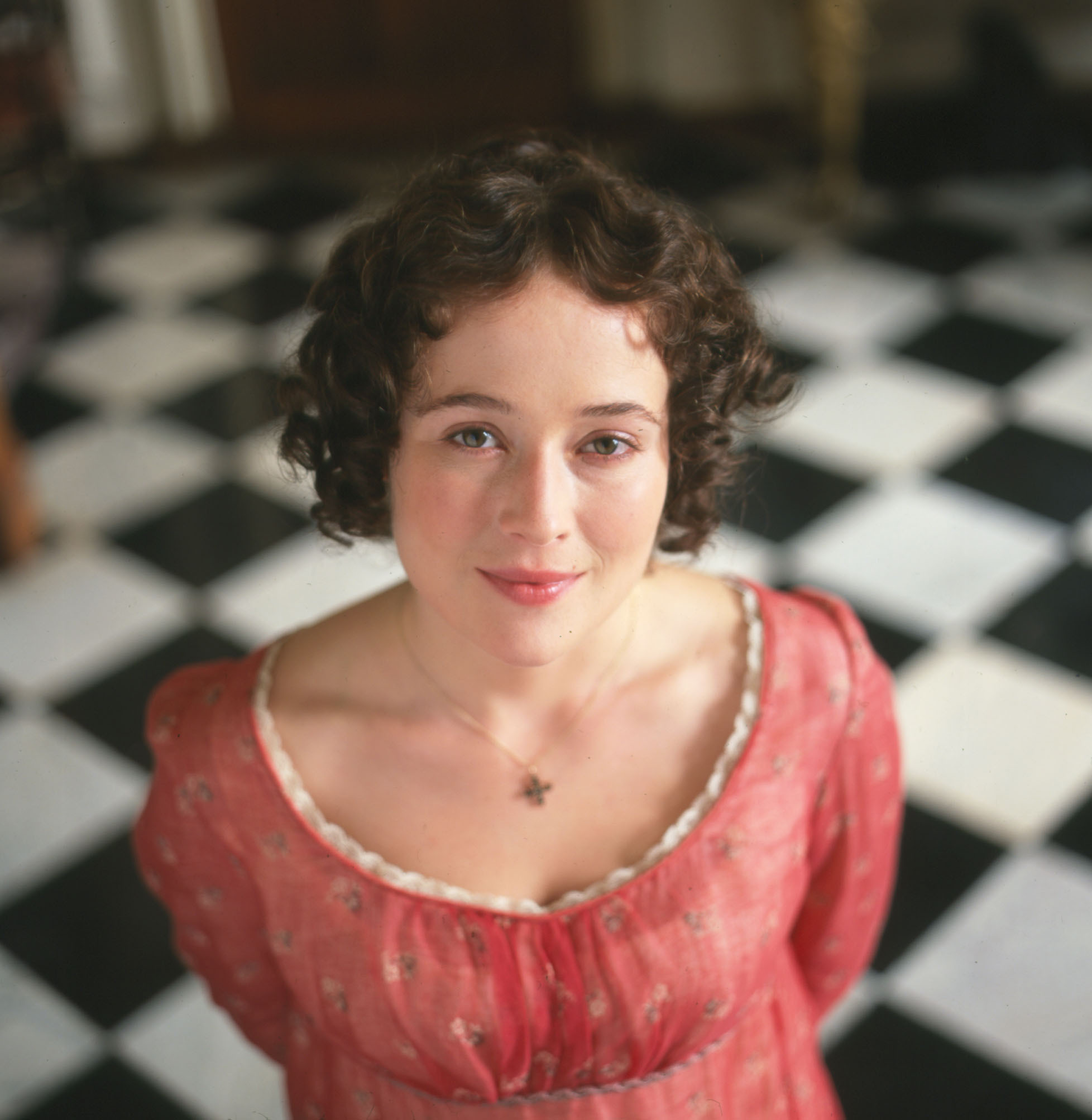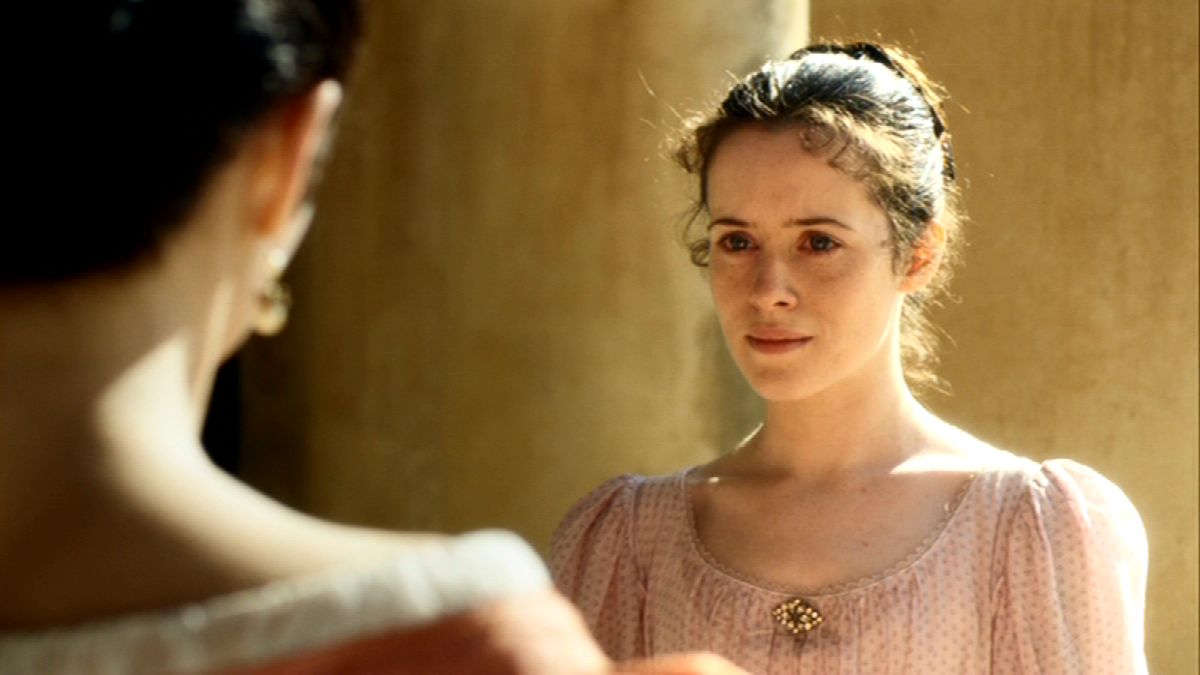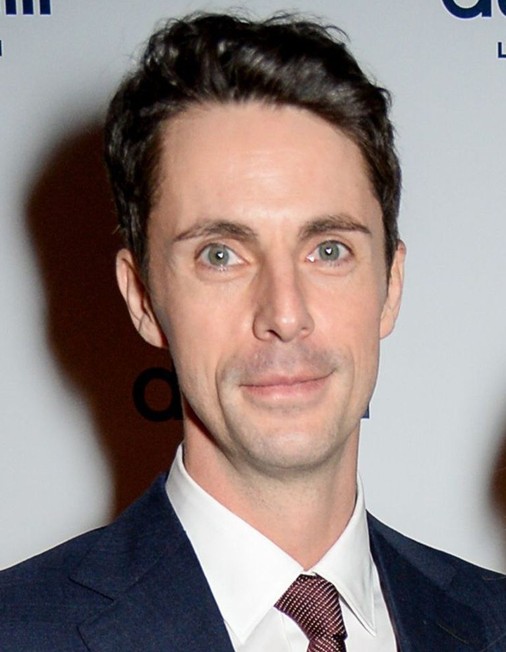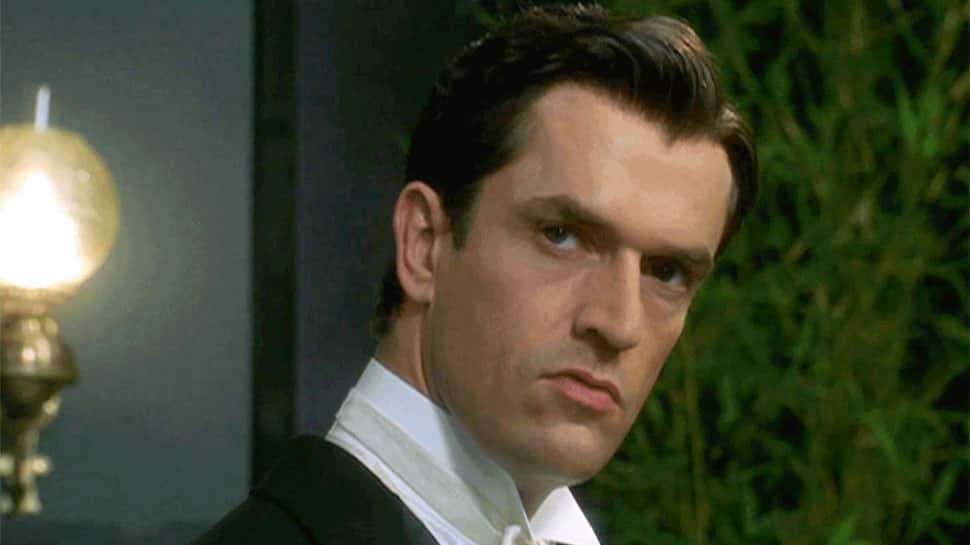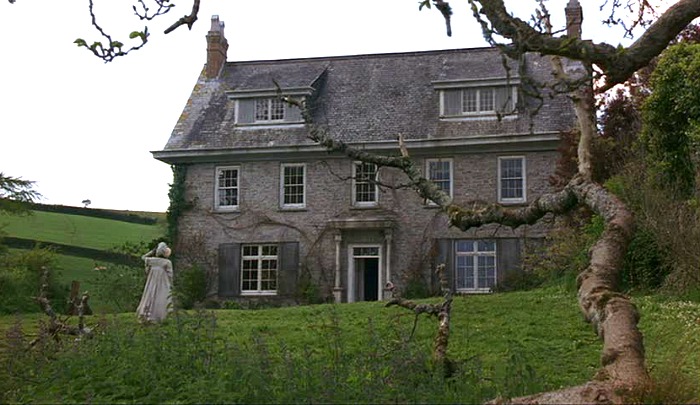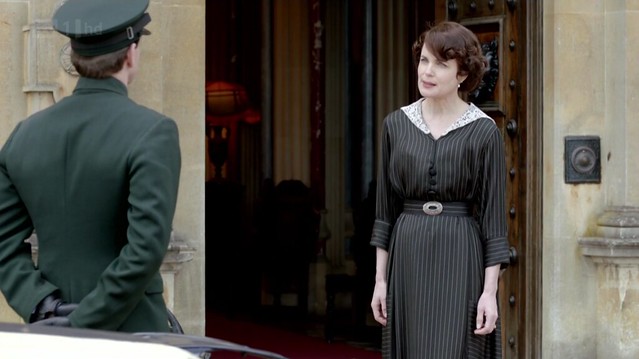Hello, all! I have made an amalgamation of
tags from here, here and here. I thought about waiting to post this till the anniversary of Jane's death, but that seemed a bit of a morbid way to remember the day, and plus it's always a good time for Jane Austen. Today is perhaps better than some to publish this, for I am going to a Box Hill picnic.
I used to dislike tags because I couldn't come up with enough people to tag, since I follow so few active bloggers. Then I realized that filling out questionnaires is really fun. So this is really not a tag, per se, because I am not tagging anyone (except readers who may wish to answer the questions in the comments). Without further ado,
Which did you experience first, a Jane Austen book or a movie based on one?
Technically neither. I first read a Great Illustrated Classics Pride and Prejudice, because I liked the cover. Then I read several of her novels before I saw any movie adaptions.
Have your Austen tastes changed over the years?
Oh, for sure. I think I loved the abridged Pride and Prejudice from the first page. I liked the story so much that I attempted the actual text. It took me several weeks at least, but I made it through. Being only eight or nine, however, I thought it was unnecessarily wordy and a bit difficult to read. Somewhere around the third reading of Pride and Prejudice I changed my mind. :)
On a scale of 1 to 10, how much of a Jane Austen fan do you consider yourself? 10! At age thirteen I had read all of her novels. At age twenty, I've read all of her short stories, unfinished stories, poems, and letters. I love everything about her and her writing. I've been remember of the Jane Austen Society for three years. I've yet to read an official biography or visit her birthplace, but those are among my goals for the next several years.
What is your favorite Austen book and how many times have you read it?
Do not ask me to pick a favorite! I always say my favorite is whichever I have read last. I have probably read P&P the most (six times?), and all the others at least three times.
Which Austen book makes you laugh the most? (Or do you not laugh over any of them?)
Hm, probably Northanger Abbey or Pride and Prejudice. MP, P, and S&S are rather more serious. Emma is also very amusing at times, though.
Favorite heroine? Why do you like her best?
Elinor Dashwood. She is so strong, compassionate without being melodramatic, practical, and selfless. Anne Elliot is a close runner up, for the same reasons.
Least favorite heroine? Marianne Dashwood or Catherine Moreland. I like Marianne, but her drama can get on my nerves. Catherine Moreland, though humble and sweet, is so naive that I don't always see how Henry (spoiler, sorry) could be attracted to her.
Favorite hero? Why do you like him best? Duh, Mr. Knightley. I know Darcy's the most frequent choice and there's a solid Wentworth group, but I love Mr. Knightley. I like that he is quick to notice other people's feeling and reactions, is is kind but not a pushover, and makes decisions based on reality and not just emotions (not saying emotions aren't real... but sometimes you need to consider facts as well). He's also intellectual, without being snobbish, and a good conversationalist.
Henry Tilney is the next runner up. I didn't use to appreciate him quite as much, simply because I sort of forgot about him, through dent of not reading NA as much as some of the other novels. But he is so witty! And also very understanding, sensitive and sweet. I still choose Mr. Knightley over Henry, however, because I'm afraid he is
too clever for me. I'd rather have a sensible conversation than have someone run 'round me with their witticisms.
I love the part when Mr. Knightley shuts down Mrs. Elton (quite politely, of course):
“No,”—he calmly replied,—“there is but one married woman in the world whom I can ever allow to invite what guests she pleases to Donwell, and that one is—”“—Mrs. Weston, I suppose,” interrupted Mrs. Elton, rather mortified.“No—Mrs. Knightley;—and till she is in being, I will manage such matters myself.”
Least favorite hero?
Edmund Bertram. I'm sorry to any Edmundites, but he is a weenie. For all his professed value of principles and morality, he is completely blindsided by a heartless woman because she is pretty and clever.
Who's your favourite Jane Austen 'villain'?
The Eltons. They are annoying but also amusing. The others are either completely despicable (like Wickham) or so realistically annoying that they are unbearable (like Mrs. Norris and Lucy Steele).
Who, in your opinion, is the funniest Jane Austen character?Ooh, that's tough. Maybe Mrs. Jennings? Or Mrs. Bennet? Oh, wait, no, Mr. Palmer. With Mrs. Elton as a close runner-up.
Which Jane Austen heroine do you relate the least to?
Probably Anne Elliot. While I value the opinion of authority figures in my life, I think I'm too headstrong to be persuaded against matrimony on purely a financial basis. I'm also not as long-suffering as she is.
Which Austen parents do you think do the best job of parenting?
If we're just dealing with the families of the main characters... There's not much to choose from. Can we count Mr. Darcy as kind of a parent to Georgianna? She turned out pretty well, which says a lot of him. Otherwise, pretty much all of the parents are lacking. The Morelands and the Dashwoods neglected to teach a daughter sense, the Bennets, Prices, and Woodhouses let their offspring run wild, the Elliots had all kinds of issues. In the end, though, Catherine's only issue is confusing fact and fiction. Her principles are sound and she has an affectionate, humble heart. So I'll go with the Morelands.
Who writes better letters, Mr Darcy or Captain Wentworth?Trying to start a showdown here? I'm going to go with Captain Wentworth.
You pierce my soul. I am half agony, half hope... I have loved none but you... You do believe that there is true attachment and constancy among men. Believe it to be most fervent, most undeviating in F. W.
Do you have a favorite film adaptation of Austen's work?
I've really enjoyed all the Emma adaptions I've seen, particularly the 1996 (Paltrow) and 2009 versions. I also like Sense and Sensibility (1995) quite a bit.
What's your favourite Jane Austen dress (from one of the movies)?What, just one?? I like all three of these pink frocks:
If you could make a new movie version of any Austen book, which one would you adapt, and who would you cast?Mansfield Park. We need a good adaption of this. I started the 1983 version but it was so downright boring that I didn't finish it. The two modern ones I have not seen, but in both I've heard they try to make Fanny Price into an Elizabeth Bennet. Unfortunately I'm not sure we'll ever get a good MP adaption because Fanny Price isn't the sort of heroine to be liked by a modern audience. Though Jane Austen declared that Emma was a heroine that no one would like but herself, I think Emma's independent, can-do character is more appealing to The Liberated Woman than quiet, moral Fanny Price. Friends, not everyone is Elizabeth Bennet and not everyone should be or has to be. Fanny is just as strong as Emma, even if she's not as commanding. She's also very patient, humble, and a victim of unrequited love.
Soapbox aside, actually coming up with a cast list is tricky because I don't know that many actors.
Morfydd Clark or Claire Foy as Fanny Price.
Michelle Dockery as Mary Crawford.
For Mr. Crawford: Maybe Tom Hiddleston or Mathew Goode?
It's hard to think of an actor who can be as moral and weak as Edmund Bertram. Maybe Dan Stevens?
Rupert Everett as Tom Bertram? Assuming he was about 15 years younger. ;)
Honestly I feel like just about anyone could play Sir Thomas — perhaps Hugh Bonneville, he has plenty of experience with stuffy old noblemen. :) I think Judy Parfitt would be excellent as Lady Bertram, except that she's a bit old. Pam Ferris could be a good Mrs. Norris.
Who would you most like to play in a Jane Austen movie?
Honestly, I would love to play any character in a Jane Austen movie, because even the most minor characters are loads of fun. I think Emma might be the most fun heroine to act.
Do you quote Jane Austen randomly in public?
Yes, I do, even though most people don't get the reference.
Is there any felicity in the world superior to a walk?No, indeed, unless it's sitting on a deck on a misty day with a cup of tea and a friend. Or lying in the grass reading a good book.
What is your reaction when you hear that an acquaintance (e.g. A lady at church) of yours loves Jane Austen?
I instantly feel that we are kindred spirits, and if I judged her/him (especially if it's a him) as not friend-material in the past, I resolve on making further efforts to get to know him/her.
Do you have any cool Austen-themed things (mugs, t-shirts, etc)?
Why yes I do. I have a Jane Austen mug that's covered in quotes, some JA stationery, way more copies of each book than is reasonable, and I have her silhouette framed on my wall. (I did win an "I Love Mr. Darcy" shirt a few months ago, but it was too large and not really my style anyway).
Do you know any English country dances?
Yes! I have been dancing for six years and actually teach ECD on occasion.
If you could ask Jane Austen one question, what would you ask her?
I think I would ask her about her faith. We know Jane was a pious woman and very traditional (she disapproved of the new Methodists) but there's not a lot else recorded about her religious beliefs. I know a lot of people want to know what was in the letters Cassandra burned and think there was some hidden love story, but I personally don't believe there's anything in that. Like any woman, there were men Jane was attracted to and may have had a little dalliance with, but I don't think anything went beyond that. Except with Mr. Bigg-Wither, which was clearly a Charlotte Lucas situation.
Share up to five favorite Jane Austen quotations!
Hm, I shared almost all my favorite quotes already above or in this post. "If I loved you less, I might be able to talk about it more. But you know what I am. — You hear nothing but truth from me.— I have blamed you, and lectured you, and you have borne it as no other woman in England would have borne it." (Mr. Knightley, Emma)
"I have been used to consider poetry as the food of love," said Darcy. "Of a fine, stout, healthy love it may. Everything nourishes what is strong already. But if it be only a slight, thin sort of inclination, I am convinced that one good sonnet will starve it entirely away." (Pride and Prejudice)
"I cannot speak well enough to be unintelligible." (Northanger Abbey)
Her family had of late been exceedingly fluctuating. For many years of her life she had had two sons; but the crime and annihilation of Edward a few weeks ago, had robbed her of one; the similar annihilation of Robert had left her for a fortnight without any; and now, by the resuscitation of Edward, she had one again. (Sense and Sensibility)
"Those who do not complain are never pitied." (Mrs. Bennet, Pride and Prejudice)
As far as walking, talking, and contriving reached, she was thoroughly benevolent, and nobody knew better how to dictate liberality to others; but her love of money was equal to her love of directing, and she knew quite as well how to save her own as to spend that of her friends. (Mansfield Park)
My dear Alicia, of what a mistake were you guilty in marrying a man of his age! just old enough to be formal, ungovernable, and to have the gout; too old to be agreeable, too young to die. (Lady Susan)
I give you joy of our new nephew, and hope if he ever comes to be hanged, it will not be till we are too old to care about it. (Letter to Cassandra)
Oops, it said only five. So much for struggling to find that many. :)
Where would you live in Austen's works? For my own part, I am excessively fond of a cottage; there is always so much comfort, so much elegance about them. If people do but know how to set about it, every comfort may be as well enjoyed in a cottage as in the most spacious dwelling. Thus, Barton Cottage is the most appealing to me, despite being a defective sort (but the shutters could be repainted, you know).
And that concludes today's monstrously long tag. Look for an Austen "Would you rather" in the future.
P.S. I've decided that, as a true Janeite, I must watch all of the film adaptions ever made of a Jane Austen novel (the ones in English, that is, and which don't have Objectionable Content). So far I've seen:
- Pride and Prejudice (1940)
- Pride and Prejudice (1995 - duh)
- Pride and Prejudice (2005)
- Pride and Prejudice (2003) - Set in modern-day Utah
- Sense and Sensibility (1995)
- Sense and Sensibility (2008)
- Scents and Sensibility (2011)
- From Prada to Nada (2011)
- Emma (1972)
- Emma (1996) - with Gwyneth Paltrow
- Emma (1996) - TV movie
- Emma (2007)
- Mansfield Park (1983) - I got very bored and could not finish.
- Persuasion (1995)
- Northanger Abbey (2007) - Did not finish because it started going in Awkward Directions
- Love and Friendship (2016) - actually Lady Susan
- Austen fan films: Miss Austen Regrets and Austenland - I started Lost in Austen but honestly it was so bad I couldn't finish.
On the to-watch list:
- Mansfield Park - 1983 miniseries, 1999 movie and 2007 miniseries. I've heard that all of these botch the story and Fanny's character but I figure a true Janeite does not depend on the representations of others. (I mean they sound pretty terrible but why not).
- Pride and Prejudice (1980)
- Sense and Sensibility (1981)
- Northanger Abbey 2007 and 1987
- Bride and Prejudice
- Becoming Jane - I KNOW it will be terrible (as Miss Austen Regrets was) but I feel I ought to see it for myself.
- Austen Country (a documentary)
Any I forgot?













